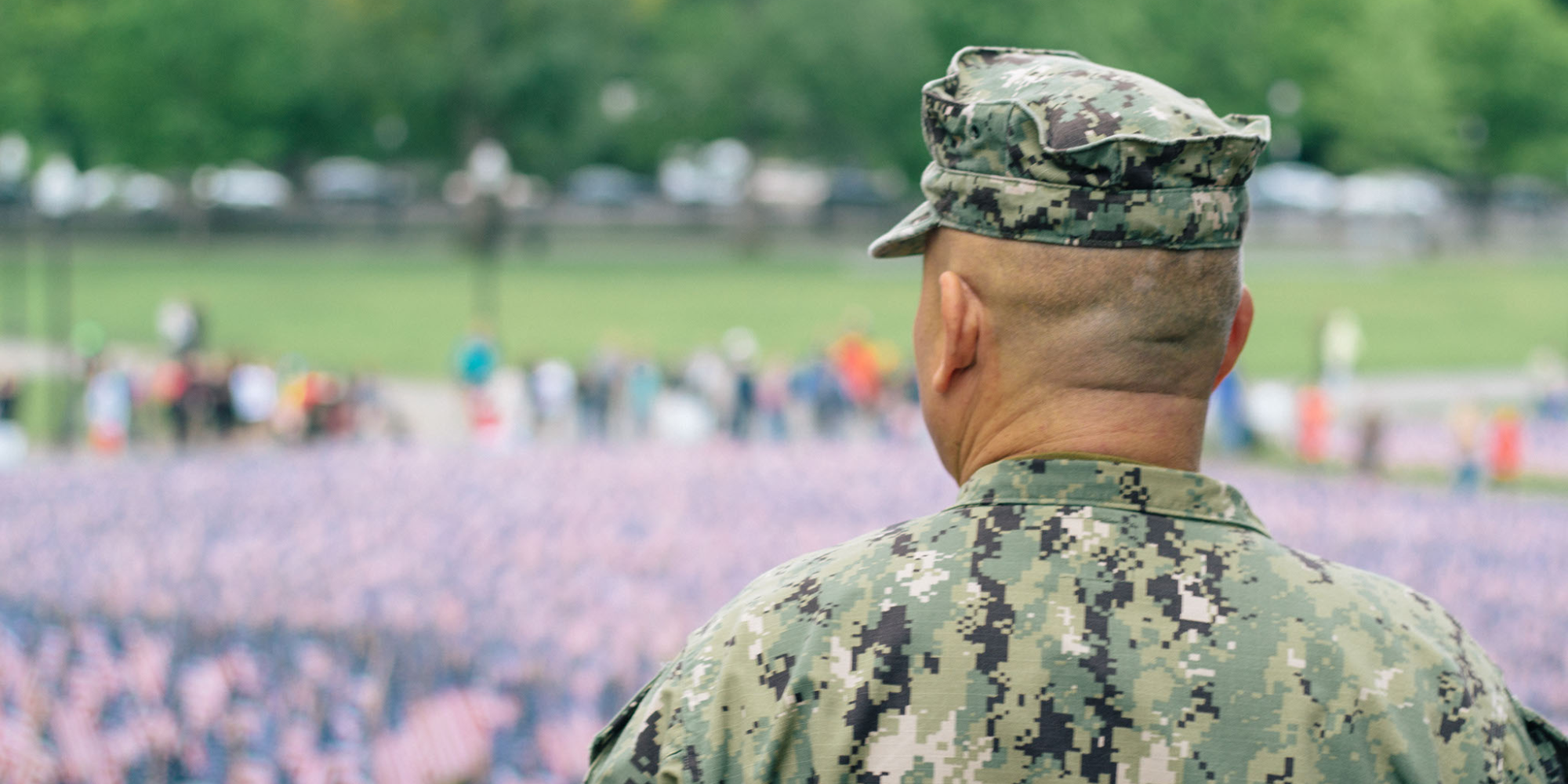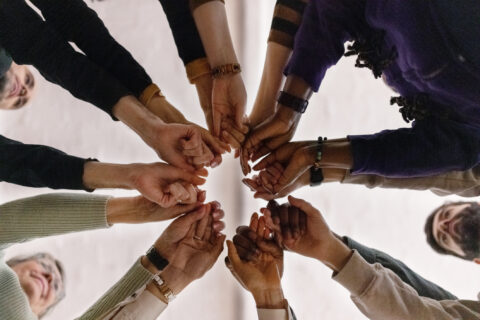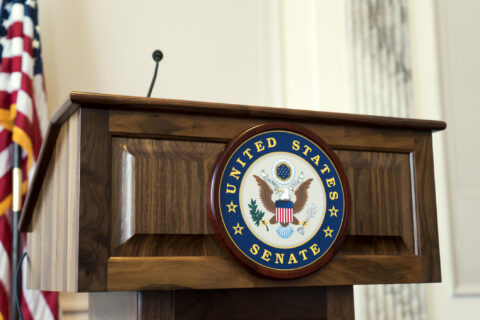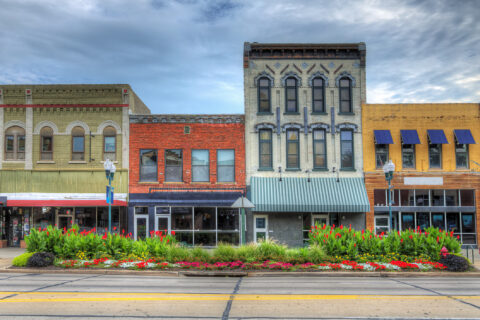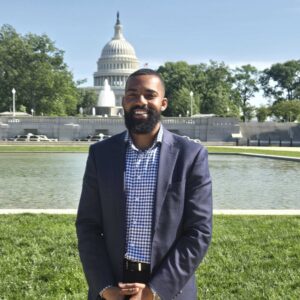As we reach the end of the year, we now have a clearer assessment of the early effects of the coronavirus pandemic on the nation and its 18 million veterans. At the onset of the pandemic it was determined that one in seven employed veterans worked in an at-risk job sector, making them more susceptible to potential layoffs. Unfortunately, the pandemic has proven to impact veterans in several ways, leaving some to experience housing, job, or food insecurity this year.
For the nation, the implications of the coronavirus have been widespread. Since mid-March, more than 66 million Americans have applied for unemployment assistance, and a projected 30-40 million U.S. residents are at risk of losing their home to eviction if additional relief measures are not soon secured. With the number of recorded COVID-19 cases on the rise, cities town and villages are bracing for the likelihood that added economic and public health challenges are to come.
As we pause on Veterans Day to honor those who have served, the National League of Cities encourages municipal leaders to consider and include the emergency and long-term needs of veterans in the development of COVID-19 response and recovery strategies.
Impacts of COVID-19 on Veterans
Like many of the nation’s residents, an increasing number of U.S. veterans are now navigating the effects of COVID-19. At the start of 2020, the unemployment rate for veterans persisted at 3.5 percent, but the economic downturn led this figure to climb to 11.7 percent in April, before settling at 6.4 percent during September. A closer examination of intra-pandemic unemployment levels reveals the disparate impacts of unemployment on veterans, with post-9/11 veterans and Black veterans bearing September unemployment rates of 7.5 percent and 7.8 percent, respectively. While these rates are aligned with the nation’s average of 7.6 percent in September, the U.S. Department of Veterans Affairs and its affiliates are closely monitoring the needs of veterans to ensure that adequate aid continues to be deployed and administered.
As we pause on Veterans Day to honor those who have served, NLC encourages municipal leaders to consider and include the emergency and long-term needs of veterans in the development of COVID-19 response and recovery strategies.
Yet even with these on-going efforts, the nationwide ebbs in unemployment have been supplemented with an ever-expanding litany of reports highlighting veterans who are now experiencing housing and food insecurity, paired with a growing number of requests for mental health services. In examining the likelihood of various pandemic-induced outcomes, service providers have expressed grave concern that these economic and public health challenges may soon increase the rates of veteran homelessness.
After spending the last decade successfully decreasing the veteran homelessness rate by almost 50 percent, housing advocates fear the veteran homelessness rate may soon climb if aid does not reach municipalities in need. To address these challenges, municipalities are partnering with civic organizations, service providers, federal agencies, and philanthropic organizations alike to assist in providing timely COVID-19 resources to veterans in need.
COVID-19 Recovery Resources for Veterans
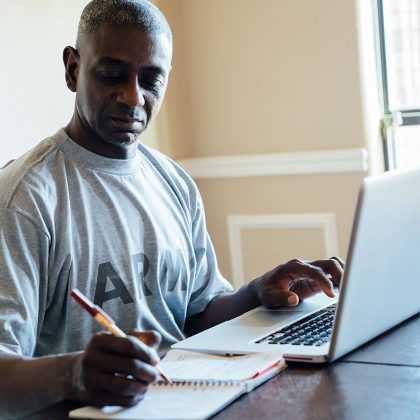
Following receipt of CARES Act funding, the U.S. Department of Veterans Affairs (VA) recently committed $700 million to services and resources for veterans who are at risk for or are currently experiencing homelessness. Services such as emergency housing, medical and mental health services, and suicide prevention supports are now available as a result of CARES VA funding. Individuals or case management providers can request these services by contacting the National Call Center for Homeless Veterans.
The VA has also elected to extend its foreclosure and eviction moratorium protections through December 31st on all properties financed by VA-guaranteed loans. By doing so, the VA aims to stabilize households and to mitigate the spread of the coronavirus.
In addressing unemployment challenges, Disabled American Veterans (DAV) has established a COVID-19 relief grant to support veterans with disabilities who have experienced employment disruptions. DAV also regularly hosts virtual job fairs that are open to all veterans and their families.
Veterans and their spouses, can also find job readiness and placement resources through the Wounded Warrior’s Career Boot Camp training program. Through this no-cost program, participants can receive job and resume coaching, and can earn professional certifications.
Additionally, NLC partners such as the Home Depot Foundation and Bob Woodruff Foundation have adjusted their grantmaking strategies and research agendas in an effort to best meet emergency veteran recovery needs.
Through a component of their on-going multi-year, multi-million dollar “Honoring our Veterans” commitment, the Home Depot Foundation has provided Veteran Housing Grants to create housing opportunities through the new construction or rehabilitation of permanent supportive housing. While applications have closed for 2020, the Home Depot Foundation anticipates re-opening applications in 2021.
Relatedly, In light of the findings from their report on Veterans and COVID-19, the Bob Woodruff Foundation modified their 2020 priorities to create an expedited grant cycle for emergency veteran relief. This year alone, Bob Woodruff Foundation has awarded $6 million to veteran-serving organizations and are currently preparing to launch a Spring 2021 grant cycle.
Other NLC partners such as Habitat for Humanity, Purple Heart Homes and the Housing Assistance Council continue to work to meet the long-term housing needs of veterans and have in spite of the pandemic have continued to meet the construction and repair needs to provide veterans permanent housing.
Looking Ahead
For many veterans, the road to recovering from the effects of COVID-19 will be steep. Cities can advance the long-term wellbeing of veterans by developing response strategies that include housing, employment and homelessness aids for veterans and their families. An equitable recovery plan for veterans must not neglect veterans of color, veterans who are women, and veterans with disabilities, who have been disproportionately impacted by the recent public health and economic challenges. An equitable recovery should derive solutions that will acknowledge the needs of all veterans. While a full recovery will likely require a joint effort of public, private, and civic actors, cities may look to use current federal relief funding and VA resources to help meet the emergency needs of veterans in their community. In partnership, the National League of Cities continues to advocate for recovery measures that recognize all our nation’s residents including those who have served to ensure that recent advancements for veterans are not erased.
